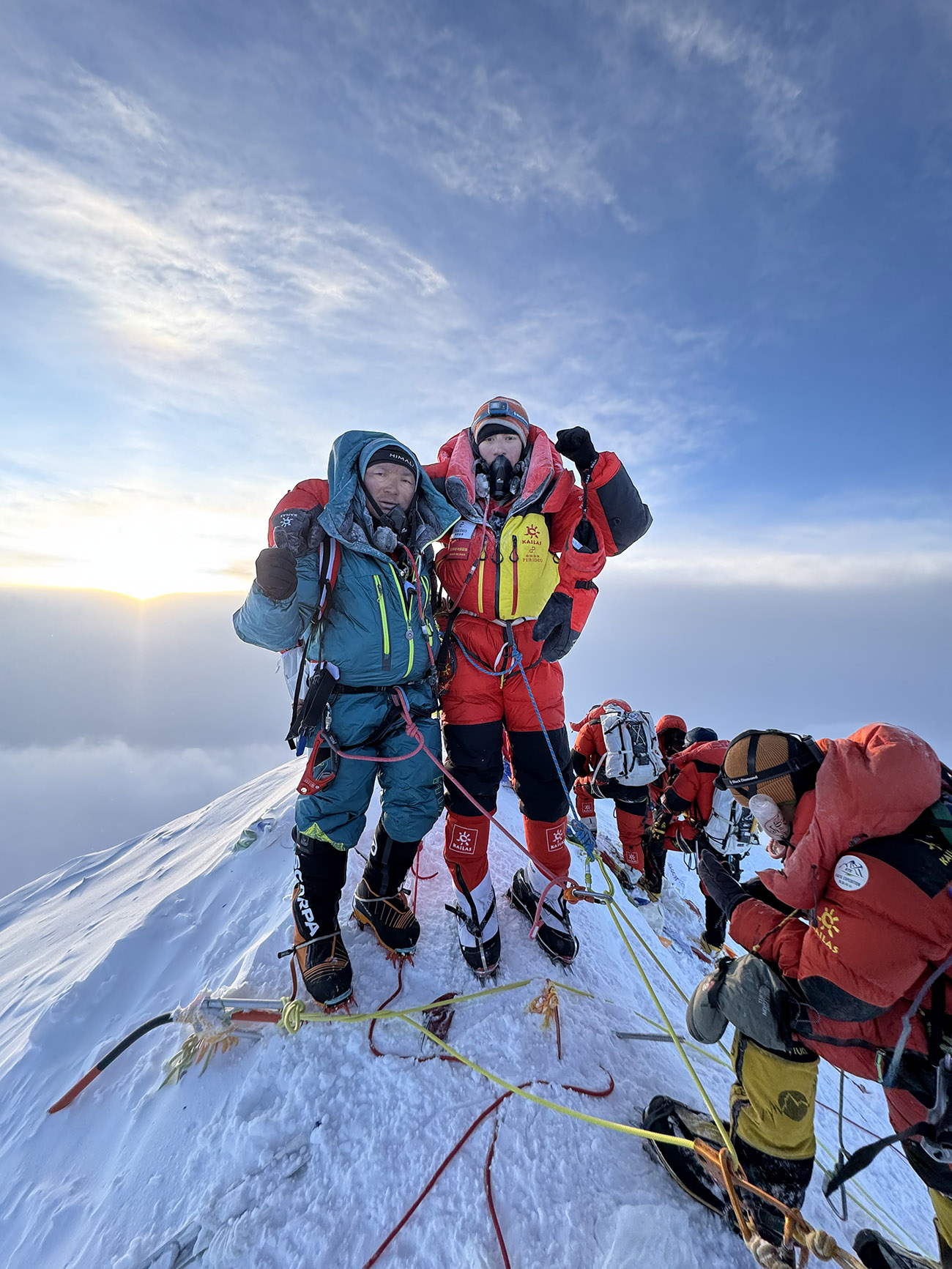
Last month, 16-year-old Alkut Dilxat became the youngest Chinese climber to reach the summit of Qomolangma, known as Mount Everest in the West.
The boy from Urumqi, capital of the Xinjiang Uygur autonomous region, overcame the physical and mental challenges presented by extreme cold, low oxygen levels, slippery cliffs, heavy wind, snow and ice, just a month after turning 16.
Reaching the summit of Qomolangma is the ultimate dream of many climbers, including me. I feel very happy and thrilled that I realized my dream.
Alkut Dilxat, youngest Chinese climber to reach the summit of Qomolangma
He arrived at South Base Camp in Nepal, on the southern slope of the world's highest mountain, on April 15. He completed 28 days of acclimatization on May 10 and several days later, when conditions were suitable, set off with about 10 experienced adult climbers to cross the treacherous and terrifying Khumbu Glacier.
READ MORE: Xinjiang teenager is youngest Chinese summitting Mount Qomolangma
They traversed silent icy valleys as they ascended slowly toward the towering peaks above, with multiple overnight camps required at the end of long days.
On May 19, breathing heavily, Alkut stepped onto the long summit ridge with unsteady steps and finally reached the top of the world, breaking a record set last year by Xu Zhuoyuan, a 17-year-old girl from Hunan province.
"I was very excited at the summit," Alkut said. "Reaching the summit of Qomolangma is the ultimate dream of many climbers, including me. I feel very happy and thrilled that I realized my dream."
Recalling sobering moments, he told of seeing the frozen bodies of climbers whose lives had been taken by the mountain.
"I had an indescribable feeling — a mixture of fear, sadness and panic. I stood motionless, wanting to give up, thinking that I don't want to end up like these climbers, staying here forever," Alkut said. "But I overcame the fear, trying not to look at them. They are heroes in my mind, and I admire their courage."
One memorable moment was when the team leader gave each of the climbers three "poop bags" to be used on the climb to collect feces that were frozen outside the tents. "We needed to bring them down the mountain," he said.
Despite his young age, Alkut — who attends Urumqi No 13 Middle School — is a national first-level mountaineer. He began to learn rock climbing at 7, skiing at 8 and ice climbing at 9. He climbed his first mountain at age 10 with his father, Dilxat Abdurxit, head of the outdoor rescue team at the Xinjiang Mountaineering Sports Service Center.
In July last year they reached the summit of Muztagh Ata, a 7,546-meter peak in Xinjiang. And then, in February, Alkut summited the 5,025-meter Siguniang Mountain in Sichuan province.
The experiences boosted his confidence, and he announced to his father that he wanted to climb Qomolangma.
His father could not accompany him because of work commitments, but that was fine with Alkut.
"He wanted to realize his dream independently," Dilxat said. "As a father, I was worried. But as a coach and friend, I wanted to support him more."
To prepare, Alkut ran 10 kilometers every morning before going to school, and took professional training on weekends. He attended an alpine skills training class organized by the Chinese Mountaineering Association in August.
During the 28 days of acclimatization in Nepal, he experienced a hypoxia reaction — illness from low levels of oxygen in his body. Chatting on video with his mother, he secretly wiped away tears.
"I encouraged him, telling him a real man must persevere," his father said. "I also told him climbing Qomolangma is very difficult and dangerous, but he would have help from guides and other team members. Life always comes first."
Dilxat said he was proud when he received a call from Alkut at the summit. "His ability to control safety risks has improved, and his understanding of nature has been enhanced," he said.
ALSO READ: 70-yr-old Wang Jian becomes oldest Chinese to reach summit of Mt Qomolangma
Alkut now plans to summit the highest peaks on the six other continents and to trek to the extremes of the North and South Poles.
"I like it when the ice ax and pick penetrate the ice — that crisp feeling, that clinking sound. It sounds very pleasant to me," he said.
"Mountain climbing is tough. Halfway through, one may feel like breaking down. And toward the end there is simply no desire to continue. It's all about willpower pushing you forward.
"However, when you return home and reflect on that feeling, it's pure happiness. Conquering a mountain peak becomes a sort of addiction. Danger lurks everywhere, and you must constantly challenge your limits."
Contact the writers at chenmeiling@chinadaily.com.cn


